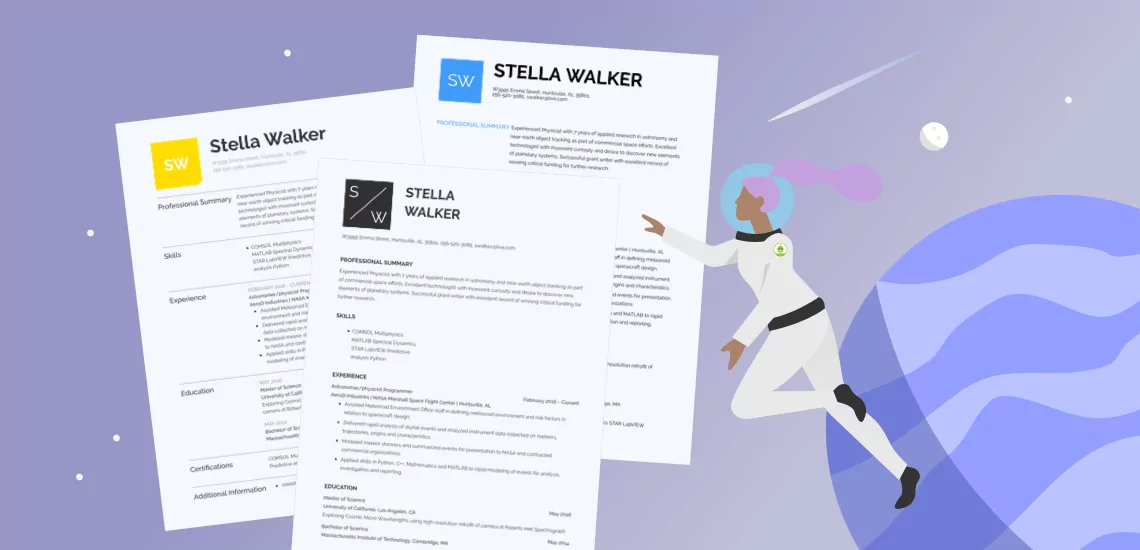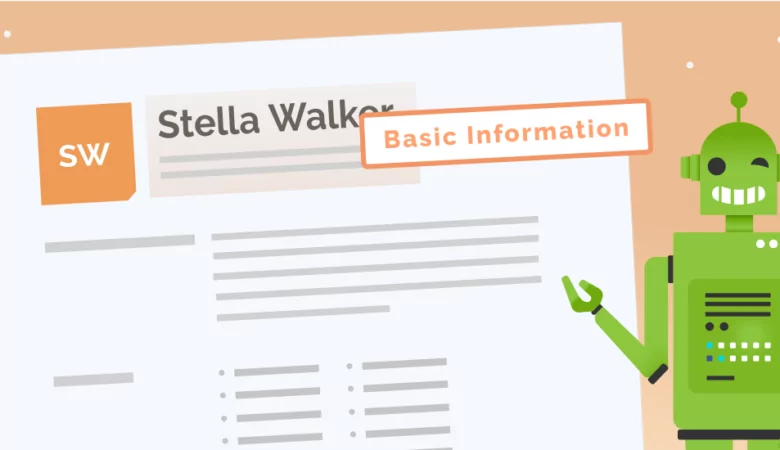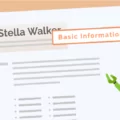If you’re interested in becoming a property manager, you must show off your real estate knowledge. Here’s how to use ResumeNerd to do just that.

Stunning Property Manager Resume Examples for This Year
Property Manager Resume Examples
As a property manager, it’s your job to oversee the operations of a specific property, whether commercial or residential. Many property managers administer several rental properties for multiple property owners. When writing a property manager's resume, you need to know how to show off your skills. Here’s what you can do.

What To Highlight in a Property Manager Resume
Most property managers have the same basic skills. That means it’s not as important for you to show your skills as it is to show what you do that’s different from everyone else. Concentrate on the elements that set you apart, whether specialized knowledge in interpersonal relationships or special connections within the industry.
Structure of a Property Manager Resume
Before you start writing your property manager resume, it’s essential to determine your resume format. Start by learning more about the three resume formats: chronological, functional and combination. Depending on your experience level, you’ll want to choose one of these formats. Then, you can move on to the rest of the resume.
Header
You want to start with your contact information, which includes your phone number, email address and professional social media links, like your LinkedIn profile.
Resume summary or objective
The first paragraph of your resume should be your resume summary or resume objective. The option you choose will depend on what you want to highlight. If you have minimal experience, opt for a resume objective. This resume format highlights your skills and education, ending with your career objective. If you have more experience, opt for a resume summary, as this will instead highlight your experiences and qualifications.
Skills
Property managers need both hard skills and soft skills to succeed. Here are a few bullet points you may see in a property manager resume sample:
- Knowledge of building occupancy rates
- Using various pieces of software (Yardi Voyager, Microsoft Office, QuickBooks)
- Project management skills
- Time management skills
- Handling accounts payable and accounts receivable
- Communication skills
- Understanding property daily operations
- Sending out evictions
- Reading financial statements
- Determining profitability
- Problem-solving skills
- Finding prospective tenants
- Rent collection
- Facilitating rent renewals
The key skills you list in your property management skills section must relate to the job description. Look through the description to find key phrases and terms that describe the skills the hiring manager lists, then include those keywords in your resume.
Work history
You should list up to 10 years of experience in your work experience section. List any job titles where you worked in property management or real estate or where you gained management experience. For example, you can list work as an assistant property manager, residential property manager, or property manager intern.
Education
A property manager needs to have, at the very least, a high school diploma. However, most recruiters will be looking for a bachelor’s degree in a business-related field, such as business administration.
Do’s and Don’ts for a Property Manager Resume
Follow these do’s and don’ts to create a professional property manager resume:
Do:
- Use industry terms relevant to your specific niche. This can show that you have industry knowledge and general expertise.
- Read and reread your resume to avoid typos and grammatical mistakes. An error can turn an excellent candidate into an undesirable candidate.
- Include keywords from the job description in your resume. You want to show that you can do the duties of this specific job.
Don’t:
- Write your resume all by yourself. That’s what the ResumeNerd resume builder is for. This builder can find property manager resume templates and expert advice.
- Overpromise in your resume. While you should be showing your best skills and knowledge, it’s also important to be truthful.
- Apply for a property manager job if you don’t already have the necessary qualifications. Get your real estate licenses and certifications first.
FAQ: Property Manager Resumes
A property manager cover letter is always a great addition to your professional resume, no matter what the job description says. Even if the description doesn’t specifically state that you need a cover letter, adding one can show off your experience, indicate what sets you apart from similar applicants and immediately place you ahead of job seekers who didn’t include a cover letter. You can write yours more easily with the ResumeNerd cover letter builder.
If you’re new to the property management game and don’t have much formal experience, you can still become a great property manager. Start by focusing on your skills and certifications, which will indicate that you know how to do the job even if you don’t have a lot of experience. Then, you can also include various related pieces of knowledge, like an internship or entry-level work with a property management group.
When you apply for a new job, it’s a good idea to switch up your resume. There isn’t one single perfect resume. You need to show off the best resume for a specific job posting. Read through the property manager job description to see what the hiring manager is looking for in this position, then include those skills and experiences in your resume.








